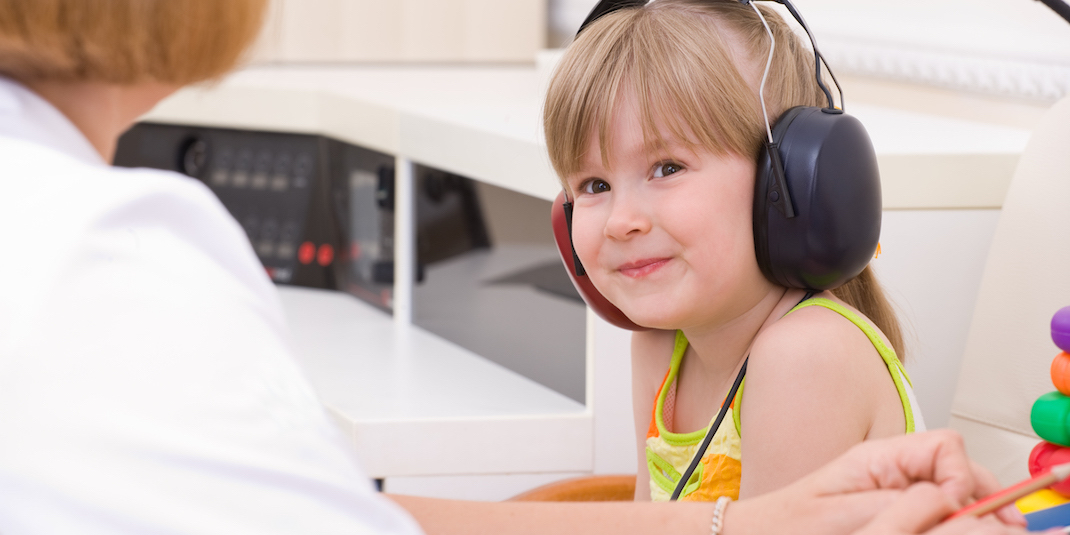MedEd Connections Resource Guide: Blind and Visually Impaired (B/VI)
Audiologist

Note: It is important for children who are blind/visually impaired (B/VI) to routinely get their hearing checked. Hearing is one of the primary ways in which people who are B/VI receive information.
If your child has a hearing loss, an audiologist will be involved both inside and outside of the school setting. An audiologist is an expert in the prevention, identification, diagnosis, and evidence-based treatment of hearing, balance, and other auditory (hearing) disorders for people of all ages. This includes increasing listening skills, also referred to as listening habilitation.
The audiologist will evaluate your child’s hearing status. This evaluation will help determine the cause of hearing loss, the current level of hearing, and whether it is a stable (level of loss doesn’t change), fluctuating (hearing loss changes over time), or progressive condition (gets worse over time). The audiologist will then recommend next steps of action, including referring you to a medical expert if needed. This medical expert is called an otolaryngologist, also known as an ear, nose, and throat (ENT) doctor.
The audiologist will also tell you about hearing assistive technology (HAT; HAT is discussed later in this guide) options appropriate for your child. They will fit, program, and maintain any chosen HAT.
![]()
![]()
For more information about the audiology profession,
see ASHA - Learn About the CSD Professions: Audiology.